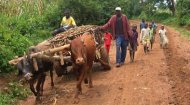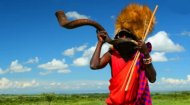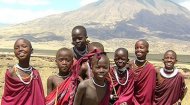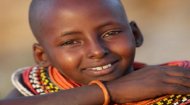|
Kenya Profile |
Kenya Profile |
Kenya Profile | Kenya Profile |

|
This varied topography results in a range of climatic conditions. The coast experiences warm, humid weather year-round, while the highlands enjoy a temperate climate, ideal for agriculture. The western regions around Lake Victoria are generally hot and humid, and the northern parts of the country are significantly drier and hotter, marked by a desert or semi-desert climate. Kenya experiences two main rainy seasons: the "long rains" from April to June and the "short rains" from October to December, though these patterns can be increasingly unpredictable due to climate change. Kenya is home to a population of 57.5 million (2025), making it one of Africa's most populous nations. It is a land of immense ethnic diversity, comprising more than 40 distinct groups, each with its unique language, customs, and traditions. The largest ethnic groups include the Kikuyu, Luhya, Luo, Kalenjin, and Kamba, alongside the iconic Maasai, renowned for their distinctive semi-nomadic lifestyle and vibrant traditional attire. Swahili is the national language and a unifying force, widely spoken across the country, while English serves as the official language, used in government, education, and business. This linguistic duality reflects Kenya's colonial past and its modern global engagement. The cultural landscape is a rich tapestry of indigenous music, dance, art, and oral literature, complemented by a strong sense of community and hospitality. Traditional practices blend seamlessly with contemporary influences, particularly in urban centres like Nairobi, a bustling metropolis and a regional economic powerhouse. Kenya boasts one of the largest and most diversified economies in East Africa, serving as a vital trade and financial hub for the region. Agriculture remains the backbone of the economy, employing a significant portion of the population. Key agricultural exports include tea, coffee, and horticultural products, especially cut flowers, which are a major foreign exchange earner. Tourism is another pillar of the Kenyan economy, leveraging the country's world-famous wildlife and stunning natural beauty. The service sector, particularly financial services and telecommunications, has experienced rapid growth, with Kenya being a global leader in mobile money innovation (M-Pesa). Manufacturing, construction, and emerging oil and gas exploration also contribute to the national GDP. Despite its progress, Kenya faces economic challenges including income inequality, youth unemployment, and the need for greater infrastructure development. The government's "Vision 2030" initiative aims to transform Kenya into a newly industrialising, middle-income country, providing a high quality of life for all its citizens. Kenya is synonymous with safari, offering unparalleled wildlife viewing opportunities that draw millions of visitors annually. Its vast network of national parks and reserves protects an incredible array of biodiversity. The Maasai Mara National Reserve is globally renowned for the Great Migration, where millions of wildebeest and zebra traverse its plains in search of greener pastures, a spectacle accompanied by predators like lions, cheetahs, and leopards. Other iconic destinations include Amboseli National Park, famous for its large herds of elephants set against the backdrop of Mount Kilimanjaro; Tsavo East and West, vast wilderness areas; and Lake Nakuru National Park, known for its flamingos and rhino sanctuary. Beyond wildlife, Kenya offers cultural tourism, adventure sports, and relaxing beach holidays along its Indian Ocean coast. Conservation efforts are paramount, with the government and various organisations working tirelessly to protect endangered species and their habitats, often involving local communities in these initiatives to foster sustainable tourism. While Kenya has made significant strides in development, it continues to grapple with several challenges. Poverty, high unemployment and income inequality remain persistent issues, particularly in rural areas where 79% of the population lives, and in informal urban settlements. Climate change poses a growing threat, leading to more frequent droughts and floods that impact agricultural productivity and livelihoods. Governance issues, including corruption, are ongoing concerns that the government is striving to address through reforms. Despite these hurdles, Kenya possesses immense potential. Its youthful and increasingly educated population, burgeoning technology sector, and strategic geographical location position it for continued growth. Investments in renewable energy, infrastructure, and human capital development are key to unlocking its future prosperity. Kenya remains a resilient nation, committed to its democratic ideals and sustainable development, poised to play a crucial role in shaping the future of East Africa and the continent as a whole. |
















